 RFID diagnosis technology for concrete structures
RFID diagnosis technology for concrete structures

Introduction
Why is structure diagnosis necessary?
Concrete structures are an essential parts of our daily lives, and, like people, they require regular health checks and continuous health monitoring to ensure long, productive lives.
Can't diagnosis be performed more easily?
Visual inspections are easy and inexpensive, but there are qualitative differences between individual inspectors.
Visual inspections are also incapable of detecting steel rebar corrosion caused by chloride attack, one of the three main causes of concrete structure deterioration.
We have developed the "Wimo® RFID diagnosis technology for concrete structures" for assessing structural integrity, led by the concepts of developing a technique which is "easy to use", "non-destructive", "quantitative", and can be "used by anyone".

Wimo® stands for "Wireless Monitoring System".
Wimo® and the Wimo® logo are registered trademarks of Taiheiyo Cement Corporation.
RFID Strain Sensing System
The results of various deterioration factors always act on structures in the form of strain. Wimo can non-destructively detect this deformation, regardless of the cause of the deterioration.
Features
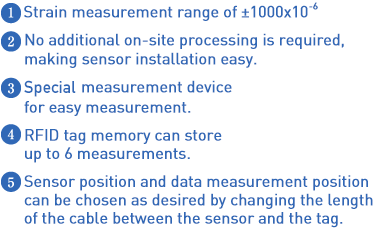
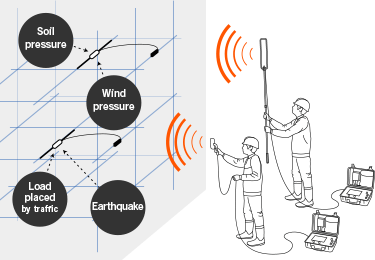
RFID Corrosion Environment
Sensing System
Damage from chloride attacks has a tremendous impact on structures. Corrosion occurring to sensors themselves is used to detect when corrosion factors, which corrodes rebar, penetrate into a structure.
Features
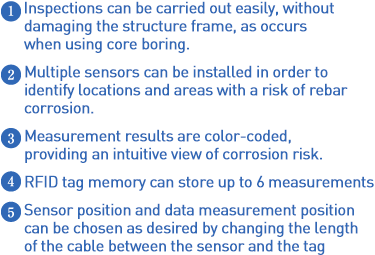
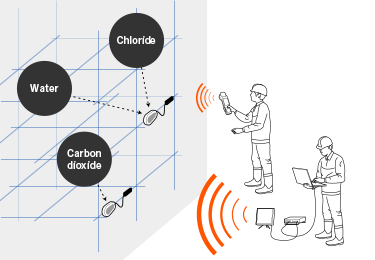
Structure information manegement
using i-CON Space
Utilizes an IC tag for easy management of information required for the maintenance operation and management of structures. Can be applied to recording of visual inspection results, traceability of concrete structures, etc.
Features

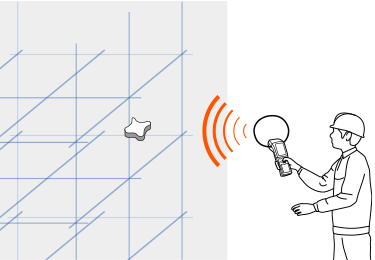
This product is certified conformant with the Japanese Radio Act.
It must be certified with local radio laws before use outside of Japan.
